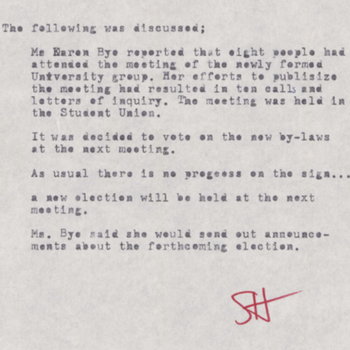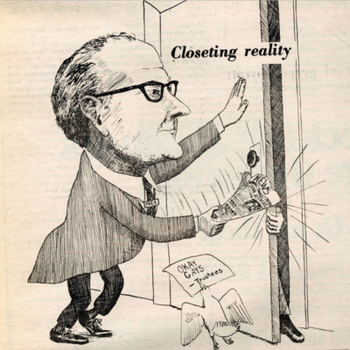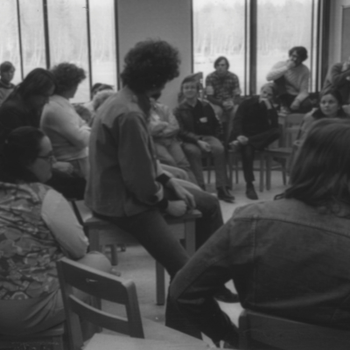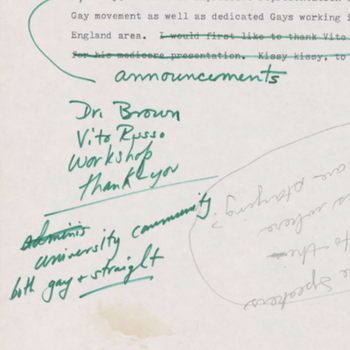<div class="container"><div class="row justify-content-center"><div class="col-md-8"><blockquote style="display:grid;margin: 1em;padding: .5em;"><p style="padding: .5em;border-radius: .25em;background: #cce6ff; font-size:1.5em">They fight not just for themselves, but for those on campus, for those coming to UMO in the future, and for those after them who will know pride, not shame.</p><footer style="font-size: 14px"><cite><em>Dr. Howard Brown</em></cite></footer></blockquote></div></div><div class="row align-items-center"><div class="col-lg-3"><div class="card text-center"><img class="card-img-top" src="https://exhibit-production-digitalcommons.s3.amazonaws.com/images/bdn-1974-0765.max-800x600.jpg" alt="Black and white photo of Dr. Howard Brown><div class="card-body"><p class="card-text m-2" style="font-size: 14px;text-align: left;"><cite><em>Photo of Dr. Howard Brown from “Maine gay ‘battleground’ homosexual speaker says” by Jeanne Steele, April 18, 1974, <em>Bangor Daily News</em>, Bangor Daily Photo Collection at Bangor Public Library Special Collections.</em></cite></p></div></div><div class="col-md-6"><p>In April 1974, the former New York City Health Services Administrator and a founder of the National Gay Task force, Dr. Howard Brown, arrived in Orono, Maine to give a talk as part of the University of Maine’s Distinguished Lecture Series. He had been invited at the behest of the Wilde-Stein Club at University of Maine, in Orono, ME.</p><p>The Wilde-Stein Club, whose purpose was to “create a campus atmosphere where the Gay student can live in an open society free from repression and discrimination,” was only eight months old. Dr Brown’s National Gay Task Force was only seven months old.</p><p>In his lecture Dr. Brown stated that Maine was a “crucial area” in the LGBTQIA+ movement and said of the club “They fight not just for themselves, but for those on campus, for those coming to UMO in the future, and for those after them who will know pride, not shame. My generation knew only the shame and not the pride.”</p><p>Both the National Gay Task Force (now the second oldest national American professional LGBTQIA+ civil rights advocacy group, and called the National LGBTQ Task Force), and the Wilde-Stein Club (which is still active today at University of Maine Orono) would prove to be vital in the National and Maine LGBTQIA+ civil rights movement.</p><p>Click on the tiles below to learn more about the founding of the Wilde-Stein Club, the controversy, and the organizing of the first Maine Gay Symposium.</p></div><div class="col-lg-3"><div class="card text-center"><div class="ratio" style="--bs-aspect-ratio: 115%;display:grid;"><object type="application/pdf" data="https://digitalcommons.usm.maine.edu/exhibit/documents/2774/MaineCampus_19740412_MaineCalledCrucial.pdf"></object></div><div class="m-2"><footer style="font-size: 14px;text-align: left"><em><a href="https://digitalcommons.library.umaine.edu/mainecampus/722/">“Maine Called Crucial area for homosexual movement” by Debbie Winsor in <em>Maine Campus</em>, April 19, 1974</a>, Raymond H. Fogler Library Special Collections, University of Maine.</em></footer></div></div></div></div




